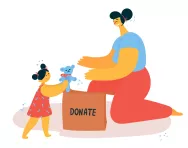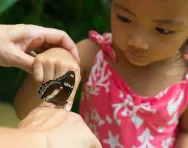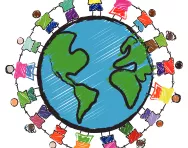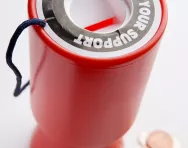Important update from TheSchoolRun
For the past 13 years, TheSchoolRun has been run by a small team of mums working from home, dedicated to providing quality educational resources to primary school parents. Unfortunately, rising supplier costs and falling revenue have made it impossible for us to continue operating, and we’ve had to make the difficult decision to close. The good news: We’ve arranged for another educational provider to take over many of our resources. These will be hosted on a new portal, where the content will be updated and expanded to support your child’s learning.
What this means for subscribers:
- Your subscription is still active, and for now, you can keep using the website as normal — just log in with your usual details to access all our articles and resources*.
- In a few months, all resources will move to the new portal. You’ll continue to have access there until your subscription ends. We’ll send you full details nearer the time.
- As a thank you for your support, we’ll also be sending you 16 primary school eBooks (worth £108.84) to download and keep.
A few changes to be aware of:
- The Learning Journey weekly email has ended, but your child’s plan will still be updated on your dashboard each Monday. Just log in to see the recommended worksheets.
- The 11+ weekly emails have now ended. We sent you all the remaining emails in the series at the end of March — please check your inbox (and spam folder) if you haven’t seen them. You can also follow the full programme here: 11+ Learning Journey.
If you have any questions, please contact us at [email protected]. Thank you for being part of our journey it’s been a privilege to support your family’s learning.
*If you need to reset your password, it will still work as usual. Please check your spam folder if the reset email doesn’t appear in your inbox.
16 ways your child can make a difference to others

Today’s kids are the future – and as parents, we have a responsibility for helping them develop into kind and compassionate adults.
Research by charity Global Action Plan (in partnership with Persil) suggests that young people are far more compassionate than self-interested: in a survey, they identified caring for other people (96%) and caring for the natural world (89%) as ‘important’ to them. Acting on social and environmental issues will be the norm, not a niche behaviour, in our children's future lives.


Start a unique learning programme!
- Weekly programme for each school year
- Worksheets sent direct to your inbox
- Keeps your child's learning on track
One way in which we can do this is by encouraging them to get involved with charity work, volunteering and acts of kindness.
We’ve rounded up 16 great ways to help your child help people and the planet: it’s never too soon to start.
1. Sponsor a child
Sponsoring a child in need will help your child learn about what it’s like to grow up in a developing country and reflect on their own privileges, such as a safe home and an education.
Although you’ll be responsible for the sponsorship, your child can exchange letters and photos with your sponsored child, forming a friendship that crosses continents.
You can sponsor a child through Plan International UK, ActionAid and World Vision.
2. Take care of the environment
Children are often passionate about the future of the planet, and embrace the chance to look after the environment through hands-on work such as planting trees and wild flower meadows, clearing paths and beach cleans.
There are lots of opportunities for your child to volunteer with environment charities, including TCV, the National Trust and the Forestry Commission.
3. Get moving for charity
Many charities run sponsored walks and runs that are aimed at kids as young as pre-school age, and taking part in one of these events will help your child raise much-needed money to support other children.
Why not sign up for a walk or run like Save the Children’s Peppa Pig Muddy Puddle walk, Barnardo’s Big Toddle, the National Literacy Trust’s Where’s Wally? Weekender fun run, or Action for Children’s Step Out for Children walk?
4. Recycle a bicycle
If your child has outgrown their bike, don’t leave it languishing in the shed, covered in cobwebs.
The Bike Project takes donated second-hand bikes of all sizes, refurbishes them and then passes them on to refugees and asylum seekers in London and Birmingham, helping to give them access to education and employment.
Visit their website to find your nearest Bike Project drop-off point.
5. Give the gift of reading
Did you know that, according to BookTrust, 770,000 children in the UK don’t have any books of their own? You and your child can help open the doors to reading by donating £10, which will be used to buy a surprise book for a vulnerable child who may have never owned a book before.
We love the idea of buying a book on behalf of your child’s teacher instead of an end-of-term gift.
6. Look after the local area
Help your child keep their community clean by taking them out litter picking. You can do this independently, or join a litter-picking group in your local area. They could even rally a group of friends to do a litter pick en masse.
Make sure your child uses gloves and a litter picker, and supervise them closely to ensure they don’t pick up broken glass or other nasties. For added bonus points, take the litter home and separate as much as possible into your recycling bins.
7. Keep a family warm
Thousands of children, along with their parents, live on the streets or in precarious temporary accommodation.
You can help a homeless or vulnerably housed child keep warm this winter by donating your child’s old coats to the Wrap Up Family, which collects old coats in good condition and distributes them, via charities, to families in need. Check out their website to find your nearest drop-off point – they also take donations of adult coats.
8. Send smiles by post
Everyone loves to receive a good old-fashioned letter, and writing to a person in need will bring a smile to their face as well as giving your child letter-writing practice.
The charity Post Pals invites people to write to sick children and their siblings: a perfect way for your child to brighten another young person’s day by sending a letter, card or drawing.
Age UK has also trialled intergenerational pen pal projects where children write to elderly people in care homes: you could contact a home in your area and ask if your child could write to a resident, or ask your local Age UK if they know of any older people who would appreciate a letter.
9. Give old shoes a new home
Wondering what you can do with children’s shoes that have been outgrown but still have life in them? Sal’s Shoes is a charity that saves them from the bin and passes them on to a child in need in the UK or another country.
Without shoes, many children can’t go to school, so your child’s donation could pave the way to an education. Find out how to donate your child’s school shoes and other outgrown shoes.
10. Donate to a food bank
Shockingly, one in six parents has gone without food in order to afford meals for their children, according to Oxfam.
One of the most immediate ways in which you and your child can help vulnerable families is by buying food for a food bank. Taking your child shopping to choose essential groceries will make them aware of the reality of food poverty and help to make a tangible difference to disadvantaged children in your area.
Many supermarkets have collection baskets for food banks, or check out the Trussell Trust to find a local food bank that’ll welcome your donations.
11. Become a book fairy
Across the country, ‘book fairies’ are sharing their love of reading by hiding books in public places in their community – and your child can join in.
All you need to do is gather together some children’s books (second-hand ones in good condition are fine), put them in a ziplock bag and hide them behind hedges, under trees, outside your local shop – anywhere that other children might find them.
Include a letter explaining that the finder should take the book home, read and enjoy it, and then re-hide it for someone else to find. You can also buy stickers and bookmarks with instructions on from The Book Fairy.
Follow The Book Fairy on Facebook to see what other book fairies are doing around the world, and share pictures of your own hide and seek book missions.
12. Take part in a sponsored event
Kids love sponsored events, and they’re a great way to raise awareness of local or national causes while having fun.
Many children will take part in sponsored activities at school, such as BookTrust's Pyjamarama, the Anti-Bullying Alliance's Odd Socks Day, and Jeans for Genes, so help them raise money by supporting them in asking relatives, family friends, neighbours and your colleagues for sponsorship (don’t let them approach strangers).
Your child could also support a cause close to their heart by taking part in their own challenge, like a sponsored silence, joke-a-thon or mini Olympics.
13. Join a community group
Joining a local group such as Beavers, Cubs or Scouts, Rainbows, Brownies or Guides, a church kids’ club or youth club, or an organisation like St John Ambulance or Sea Cadets isn’t just great fun your child: it’ll also help them make a difference in their community.
Many of these groups take part in social action on a local scale, ranging from fundraising at fetes and fairs to sponsored events to litter picks, giving your child the chance to contribute to important community causes.
14. Fill a pencil case to support budding artists
Does your child have plenty of coloured pencils, paints and art supplies to choose from? The charity Heart Felt Tips asks kids to fill a pencil case with pens and creative tools. The pencil cases are then distributed via frontline food banks, children’s charities, hospitals and faith centres to some of the 4 million British children who don't have their own stationery at home.
As well as learning about the importance of recycling items that still have lots of use left in them, the Heart Felt Tips project also helps build empathy. Families who are having a hard time shouldn't be denied hope and a creative outlet – Heart Felt Tips aims to help ensure that doesn’t happen.
15. Buy a child a Christmas present
Help your child share the joy of receiving a Christmas present by sending one to a child in need.
In London, the Met Police collects Christmas presents to distribute to vulnerable children throughout the capital: find your nearest participating police station, take a festive ribbon from the Christmas tree outside, and follow the instructions explaining how to donate a gift. You can also find details of the Met Christmas Appeal online.
Outside London, the Salvation Army’s Christmas Present Appeal collects toys and gifts for disadvantaged children: contact your local branch to find out how your child can help.
Aquabox collects welfare items from a recommended list to fill water treatment boxes which can be sent quickly to disaster areas. A number of UK schools run Aquabox collection schemes and children can get involved in fundraising and packing the boxes, understanding how filtration units convert dirty water into a clean, drinkable supply.
16. Support the war on plastic
Single-use plastic is one of the greatest environmental threats of our age, but your child can make a difference by cutting down on their own plastic waste and raising awareness of the anti-plastic campaign.
Kids Against Plastic helps children join the war on plastic. There’s a whole host of ways to be involved, from taking part in the Pick Up 100,000 challenge, which aims to rid the environment of plastic litter, by picking up and throwing away bottles, cups, straws and more, to encouraging their school to become a Plastic-Clever school: small actions on a local scale can make a big difference to the future of our planet.
To find more charities that your child can support in your local area, visit the Charities Aid Foundation’s search page.








